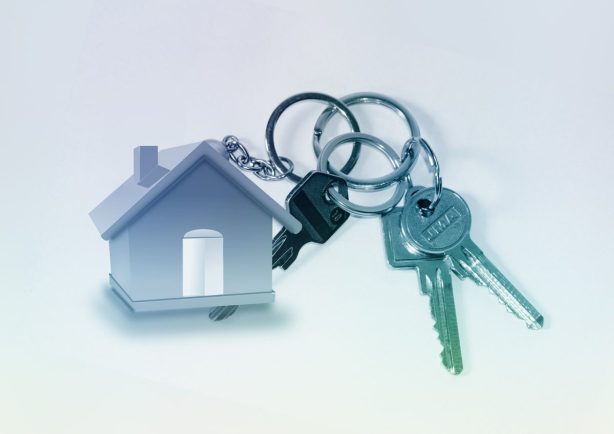Maximising rental property value is a crucial goal for landlords, as it directly impacts their financial success in the real estate market.
This process involves finding and implementing practical strategies to enhance a property’s appeal to prospective tenants while ensuring that it generates a competitive return on investment. As the rental market continues to evolve, landlords must remain up-to-date with current trends and adopt a proactive approach to optimising their properties.
By taking a strategic approach to property management, landlords can maximise their rental property value and achieve long-term success in the competitive buy-to-let market.
Property Selection and Features
When looking to maximise property value, landlords should consider several crucial factors regarding their property investments.
Location plays a significant role in attracting tenants and determining rental value. A property situated near essential amenities such as schools, shops, restaurants and public transport links is typically more appealing to potential renters.
The size of the property is another crucial aspect. Larger properties with extra bedrooms can command higher rental prices. However, landlords should also consider the demand in their area for properties of different sizes, ensuring that they are catering to the local market. It is advisable to research the typical tenant profile in the area and match the property features accordingly.
Outdoor space is an attractive feature for many tenants, so properties with parking facilities or gardens are likely to be more desirable. Investment in well-maintained landscaped garden areas may potentially increase the property’s value.
The condition of the property is critical in attracting and retaining quality tenants. Clean, well-maintained homes can communicate to prospective renters that the landlord cares about their investment and the tenant’s well-being. Ensuring that necessary repairs are addressed promptly and conducting regular maintenance checks can help maintain property condition and tenant satisfaction.
When it comes to furnishing and appliances, landlords should strike a balance between practicality and style. Providing quality furniture and modern appliances can enhance the property’s appeal to tenants. Additionally, offering added extras, such as built-in storage solutions or energy-efficient features, can differentiate a property from competitors in the market.
Increasing Property Value
One key aspect of maximising rental property value is to focus on making strategic upgrades and maintaining the property. This section offers practical tips for landlords aimed at increasing property value.
First and foremost, adding value to your property can be achieved by investing in the kitchen and bathroom. A well-designed, modern kitchen with updated appliances and fixtures can substantially boost the value of a rental property. Likewise, an inviting bathroom with quality fittings and a fresh design can attract tenants, improving rental income. Simple renovations, such as replacing old countertops, installing new cabinets, and upgrading to energy-efficient appliances, can make a remarkable difference.
Proper cleaning and repairs are also essential elements in enhancing property value. Ensure that the property is well-maintained, and address any issues that may become problematic if left unattended. This includes fixing plumbing issues, repainting walls, cleaning gutters, and performing regular maintenance checks. A clean and well-maintained property is more appealing to potential tenants and can justify higher rent.
Curb appeal plays a significant role in attracting tenants and increasing property value. Many potential renters judge a property by its exterior appearance, so it is crucial to invest in landscaping and general upkeep. Simple touches such as trimming hedges, planting attractive flowers, or repainting the front door can leave a lasting impression on prospective tenants, thereby raising the property value 3.
Managing Finances
Effectively managing finances is essential for landlords aiming to maximise their rental property value. A solid understanding of the various costs and income sources is critical to achieving the best return on investment.
Landlords need to be proactive in setting and adjusting rent prices to achieve the optimal rental income while maintaining competitiveness in the market. Conducting research on similar properties in the area and staying updated on current house prices can provide valuable information for landlords to base their decisions. Regularly revisiting the rental price and making adjustments according to market fluctuations will help maximise profits.
Reducing costs is another vital aspect of financial management for landlords. By keeping expenses under control, a higher overall return on investment can be achieved. Key costs to consider include:
- Mortgage payments: Landlords should continually monitor mortgage rates and consider refinancing options when it’s financially advantageous.
- Stamp duty: Understanding how stamp duty affects the cost of purchasing a property and incorporating it into the overall financial plan can help budget more accurately.
- Maintenance and repairs: Regular upkeep of a property can prevent expensive repairs while attracting desirable tenants, ultimately contributing to a higher rental yield.
- Property insurance: Comparing and selecting the right insurance policy can protect the landlord’s investment and help manage unforeseen costs.
It’s essential to be diligent when hiring third-party services, such as estate agents, letting agents, and property management agencies, to ensure cost-effectiveness. By comparing fees and services offered, landlords can find trustworthy professionals who align with their property management goals and contribute to maximising rental property value.
Finally, diligent financial record-keeping plays a crucial role in managing finances. Maintaining clear and accurate records of all income, outgoings, and expenses related to the property is necessary for tax and budgeting purposes. Developing a strong bookkeeping system can help landlords better analyse their financial situation and make more informed decisions to optimise their rental yield.
Tenant Management and Satisfaction
Effective tenant management is essential for landlords to maintain a steady rental income and reduce void periods. Ensuring tenant satisfaction is crucial for attracting and retaining high-quality tenants, such as young professionals and families, ultimately maximising the rental property value.
One key aspect of tenant management is thoroughly screening potential tenants. By implementing a rigorous screening process, landlords can minimise the risk of problematic tenants and ensure that they attract individuals who will maintain the property and pay rent on time.
Furthermore, landlords must consider their target tenant profile when designing and marketing their property. Young professionals often seek modern, stylish properties with functional living spaces and easy access to transport links. Families, on the other hand, tend to prioritise properties with more bedrooms, ample storage space and proximity to schools and parks.
Maintaining a good relationship with tenants involves timely communication and prompt action on any maintenance issues or concerns. By being responsive and addressing problems swiftly, landlords can foster a sense of trust and make tenants more likely to stay long term, reducing void periods.
A significant factor in tenant satisfaction is the property’s flexibility in accommodating different lifestyles. Landlords ought to consider the benefits of allowing pets into a rental property, as this can appeal to a broader range of potential tenants and provide a competitive edge in the lettings market. Pet-friendly properties can attract responsible tenants who are willing to pay a premium or make a larger deposit in exchange for accommodating their pets.
Prioritising Security and Ease in Your Rental Property
One of the best ways to maximise rental property value is to prioritise security and ease for tenants. A safe living space is highly sought after by potential renters, and by providing reliable security measures, landlords can attract quality tenants while also reducing the risk of theft or other criminal activities.
Installing strong, multi-point locks can greatly increase security. For example, 5-point locking doors with a TS 007 rating provide a higher degree of protection, as they are harder to force open. This measure is especially important for HMOs, as they require a different type of lock.
In addition to secure door locks, choosing a high-end access control system is a practical way to enhance the convenience and safety for your tenants. Access control systems offer a keyless entry option and can be customised to allow different levels of access for individual tenants or maintenance personnel. This provides an added layer of security and ease for your rental property.
Another aspect of prioritising security is ensuring that outdoor areas, such as the front and rear gardens, are well-maintained and well-lit. According to some experts, a well-tended rear garden can add as much as 10% to the property value. Alongside this, installing adequate outdoor lighting can further deter potential criminals and help tenants feel more secure.
Lastly, to improve the ease and convenience of your rental property, consider investing in upgrades that cater to modern tenant expectations. For example, replacing worn-out furniture or upgrading the kitchen to include practical and stylish appliances can make a significant impact on the property’s overall appeal. An attractive kitchen can be a major selling point for potential renters.
Optimising Rental Portfolio
As a landlord, optimising your rental property portfolio is essential for greater profitability and increased rental income. Implementing the right strategies can significantly enhance a property owner’s annual rental income while also improving tenant satisfaction. Here are a few practical tips to consider when working on your property portfolio.
Carrying out regular maintenance and property inspections allows you to identify potential issues before they become major problems. This helps maintain the property’s value and appeal to potential tenants. Investing in property renovations and upgrades that offer modern amenities can also attract a higher quality of tenants willing to pay more for rent, further increasing your rental yields. Investing in energy-efficient appliances and systems can lower your tenants’ utility bills, making your property more appealing and potentially justifying rental increases.
Diversifying your investment properties is another crucial aspect of portfolio optimisation. By investing in various types of properties, such as residential, commercial, and mixed-use, you can spread your risk and better navigate fluctuations in the market. Researching local markets can ensure you invest in areas with high market demand and good rental yields, such as cities like London or other major urban areas.
Implementing rental increases is an effective strategy for maximising rental income. Regularly reviewing and adjusting rental rates according to market conditions and property values can present opportunities to raise rent, thus benefiting your annual rental income. It is essential, however, to be aware of local regulations and guidelines regarding rent increases to avoid potential legal issues.
Embracing Eco-friendly Property Management Practices
Integrating eco-friendly property management practices in a rental property not only helps preserve the environment but also adds value and appeal to potential tenants. In this section, we will explore a few practical tips that landlords can implement for a more sustainable property.
One of the key steps in creating an eco-friendly rental property is to conserve water. This can be achieved by installing water-efficient fixtures, such as low-flow taps, showerheads, and toilets. Landlords can also encourage tenants to conserve water by offering incentives and sharing informative materials on water conservation.
Energy efficiency is another vital aspect of green property management. By incorporating energy-saving appliances, insulating the property, and ensuring proper sealing of windows and doors, landlords can reduce the overall energy consumption within the property. Additionally, installing eco-friendly lighting solutions, such as LED bulbs and motion sensor lights, can help further reduce energy usage.
Next, landlords should focus on improving indoor air quality by choosing low VOC (volatile organic compounds) and odourless paints when decorating the property. Encouraging tenants to use natural cleaning products and providing proper ventilation will help maintain a healthy indoor environment.
Waste management is another crucial element in sustainable property management. Implementing a recycling system and providing composting facilities will help tenants dispose of their waste responsibly. Landlords can also invest in durable materials for their property to reduce waste generated during renovations and repairs.
Lastly, integrating rainwater drainage solutions, such as rain gardens and permeable pavement, can help mitigate the impact of stormwater runoff on the environment. These measures prevent pollution and erosion while recharging the groundwater supply.
Market Research and Trends
A vital aspect of maximising rental property value lies in conducting thorough market research and keeping an eye on current trends. By staying informed on the local rental market, landlords can position their properties competitively and ensure optimal returns.
One of the key components of market research is the analysis of comparable properties. Understanding the features and rental rates of similar properties allows landlords to price their property accordingly and make necessary adjustments to match the competition. This can involve monitoring the rental prices and property features in the local area.
Taking note of insights from industry sources and accessing expert guidance can provide invaluable information on the current rental market landscape. Knowing fluctuations in rental costs helps landlords adapt to shifting demands within the market and plan accordingly.
Understanding your target tenant is crucial for optimising a property’s appeal. Determining whether your property is more suited to families, young professionals, or students, allows landlords to make informed decisions when improving or marketing their property. It is important to research nearby amenities such as schools, parks, and transportation links, as these have a significant impact on tenant satisfaction and rental desirability.
Keeping these factors in mind, landlords can ensure they remain ahead of the curve in an ever-changing rental market, enabling them to effectively maximise their property value. By continuously staying updated on market research and trends, they can position their properties competitively and cater to the evolving needs of their target tenants.











